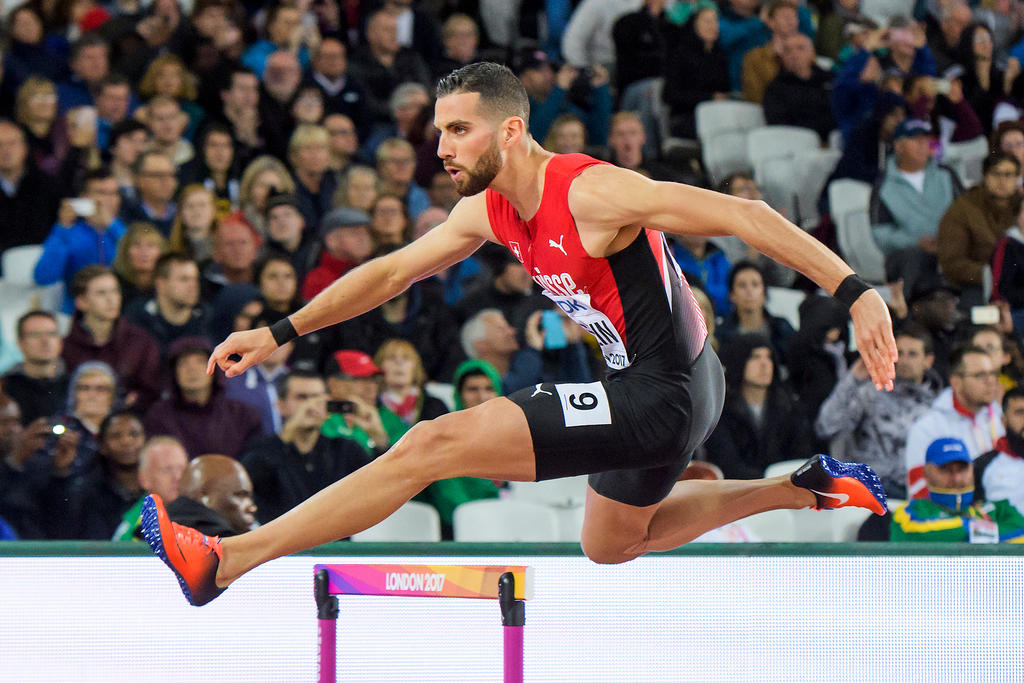
Sport and study: a high hurdle, but help on hand

It is not always easy for Swiss elite athletes to combine a demanding training schedule and competitions with their studies. But help has come in the form of a new declaration aimed at making it easier for them to study part-time and access the support that they need.
The declarationExternal link was signed by Swiss OlympicExternal link, representing Swiss sports associations, and swissuniversitiesExternal link, the umbrella group of Swiss universities, on Monday.
“The main points are that elite athletes can do part-time studies, or extend their studies. In some universities, this is already possible, but with this agreement we would like all universities to offer this option to athletes,” said Alexander Wäfler, Swissolympic’s spokesman.
Part-time study is already possible in Swiss universities, also for non-athletes, although full-time courses are still the rule.External link
Wäfler said the agreement was a first step, but was not binding. “Universities have their own rules, we can’t tell them what to do, but we can make recommendations.”
Support could also come in the form of podcasts and documents being put online, Michael Hengartner, the president of swissunviersities, told Swiss public television SRFExternal link. “All this should allow elite athletes to be successful without them having to sit in lecture theatres every week.”
He admitted that this was not the case everywhere. “We can quite clearly improve here,” he said.
Not easy
Elite athletes in education made up 37% of Swiss athletes at the 2010 and 2014 Olympic Games. Among the most well-known is Kariem HusseinExternal link, who was 2014 European 400 metres hurdles champion. “Bringing in competitive sports and medical studies together isn’t easy: it’s quite demanding and requires perfect organisation,” he says on his website.
Another medical student was on hand at the signing on Monday. Champion rower Lucas Tramèr welcomed the move. “It’s high time,” tweeted the 2016 Olympic gold medallist in the men’s lightweight four.
Petra KlinglerExternal link is the reigning world bouldering champion and student of sport psychology. She trains 20 hours per week. The 25-year-old told SRF that often her sporting high season often coincided with the exam period. Compulsory university attendance has meant her dropping some competitions, although the situation has become more flexible now.
Klingler, who also attended the signing, welcomed the part-time model proposal. Many of her former sporting colleagues have given up elite sport because it is so hard to combine the hours of training, competitions and studying, she told SRF.
And abroad?
These are all athletes in the peak of their careers. But in most sports, athletes don’t earn enough money that they don’t have to work afterwards, Wäfler said. This is why they need an education as well.
Swiss Olympic also runs a programmeExternal link which awards a label to high schools and companies that are especially athlete-friendly and that offer more flexible conditions for young athletes, he pointed out. swissinfo.ch recently reported on a dual programme with a vocational qualification for promising young ice hockey players.
And although Switzerland had just made this step in the form of a joint declaration between sports associations and universities, it does not necessarily lag behind other countries in terms of sport and studying, Wäfler said.
“Of course, we are not the United States where they have this college system in which good athletes go to college and do their sports, but in Germany, Austria and a lot of other European countries the problem is basically the same,” he told swissinfo.ch.
Main points
Part-time study possible in all universities, and in as many subjects as possible. Support associated problems through pragmatic solutions like variable length of study and being flexible.
Universities should keep to their guidelines for elite athletes, and make them accessible. Swiss Olympic should raise awareness among its members that it’s possible to study and do elite sport.
Swiss Olympic and Swiss Federation of University Sport should ensure that potential and current elite athlete students receive advice and support before and during their studies.
Swiss Olympic already has an athlete career programme aimed at helping elite athletes find jobs post-sports career, for example by doing an internship.

In compliance with the JTI standards
More: SWI swissinfo.ch certified by the Journalism Trust Initiative






























You can find an overview of ongoing debates with our journalists here . Please join us!
If you want to start a conversation about a topic raised in this article or want to report factual errors, email us at english@swissinfo.ch.